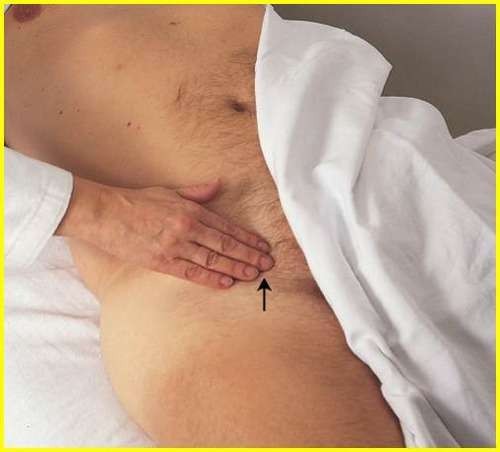A nurse is assessing a client who is experiencing hypovolemia. Which of the following manifestations should the nurse expect?
Epistaxis.
Headache.
Dizziness.
Shortness of breath.
The Correct Answer is C
Dizziness is a manifestation of hypovolemia, which is a decrease in blood volume due to fluid loss. Hypovolemia can cause orthostatic hypotension, which is a drop in blood pressure when changing positions. This can lead to dizziness, lightheadedness, or fainting.
Choice A is wrong because it is not a sign of hypovolemia, but rather a possible cause of it. Epistaxis is a nosebleed that can result from trauma, infection, dryness, or coagulation disorders.
Choice B is wrong because it is not a specific sign of hypovolemia, but rather a nonspecific symptom that can have many causes. Headache can be associated with dehydration, but it can also be caused by stress, infection, inflammation, or other factors.
Choice D is wrong because it is not a sign of hypovolemia, but rather a sign of fluid volume excess.
Fluid volume excess is an increase in blood volume due to fluid retention or overload. Fluid volume excess can cause dyspnea, which is difficulty breathing or shortness of breath.
Normal ranges for blood pressure are 90/60 mm Hg to 120/80 mm Hg for adults. Normal ranges for heart rate are 60 to 100 beats per minute for adults.
Nursing Test Bank
Naxlex Comprehensive Predictor Exams
Related Questions
Correct Answer is A
Explanation
Hematuria is the presence of red blood cells in the urine, which can make it appear pink or cola-colored. Hematuria is a common sign of glomerulonephritis, which is inflammation of the tiny filters in the kidneys (glomeruli) that remove waste and excess fluid from the blood. Hematuria occurs because the inflamed glomeruli allow some blood cells to leak into the urine.
Choice B is wrong because polyuria is the production of abnormally large amounts of urine. Polyuria is not a typical feature of acute glomerulonephritis, which may actually cause reduced urine output due to fluid retention and decreased kidney function.
Choice C is wrong because weight loss is not a common symptom of acute glomerulonephritis. On the contrary, weight gain may occur due to fluid retention and edema (swelling) in the face, hands, feet and abdomen.
Choice D is wrong because hypotension is low blood pressure. Hypotension is not usually associated with acute glomerulonephritis, which may cause high blood pressure (hypertension) due to fluid overload and impaired sodium excretion by the kidneys.
Normal ranges for blood pressure are less than 120/80 mmHg for adults. Normal ranges for urine output are about 800 to 2000 mL per day for adults.
Normal ranges for protein in the urine are less than 150 mg per day for adults. Normal ranges for red blood cells in the urine are less than 3 per high-power field for men and less than 5 per high-power field for women.
Correct Answer is C
Explanation

This is because coarctation of the aorta is a congenital condition where the aorta is narrow, usually in the area where the ductus arteriosus inserts. This causes a decrease in blood flow to the lower body, resulting in weak or absent pulses in the femoral arteries.
The other choices are incorrect for the following reasons:
Choice A is not a typical sign of coarctation of the aorta.
Nosebleeds can be caused by many factors, such as dry air, allergies, trauma, or bleeding disorders.
Choice B is also not a common finding in coarctation of the aorta. In fact, patients with this condition may have high blood pressure in the upper extremities due to the increased resistance of the narrowed aorta.
Choice D is not directly related to coarctation of the aorta.
Increased intracranial pressure can be caused by various conditions that affect the brain, such as head injury, stroke, infection, or tumor.
Normal ranges for blood pressure and pulse vary depending on age, sex, and health status. However, some general guidelines are:
- Blood pressure: less than 120/80 mmHg for adults; less than 95/65 mmHg for infants.
- Pulse: 60 to 100 beats per minute for adults; 100 to 160 beats per minute for infants.
Whether you are a student looking to ace your exams or a practicing nurse seeking to enhance your expertise , our nursing education contents will empower you with the confidence and competence to make a difference in the lives of patients and become a respected leader in the healthcare field.
Visit Naxlex, invest in your future and unlock endless possibilities with our unparalleled nursing education contents today
Report Wrong Answer on the Current Question
Do you disagree with the answer? If yes, what is your expected answer? Explain.
Kindly be descriptive with the issue you are facing.
